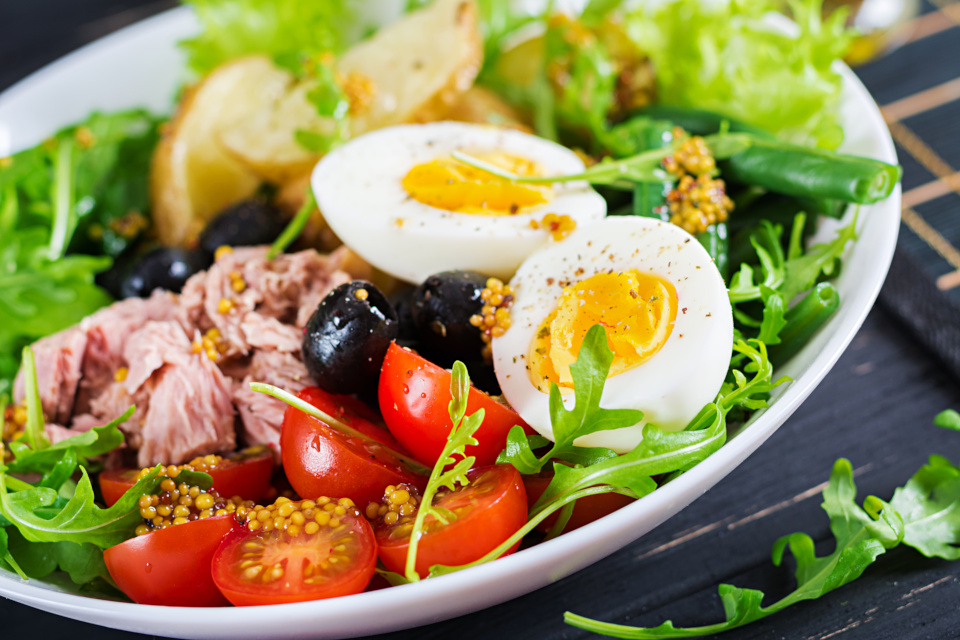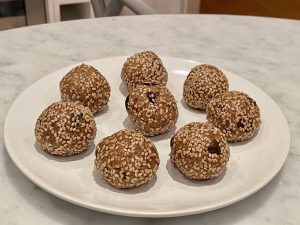Shifting Through The Seasons With Boosted Immunity
Hello Everyone! I love seasonal changes, for each one carries beauty. Of course, when the weather, temperature, and light change, it is inevitable that these will have an effect on our mental, physical, and emotional health.
For this post, I am going to focus on the immune system. It reminds everyone, no matter the season, that good immune health equals good health. Many of you can be in control of looking after it, too!
What Is a Healthy Immune System?
What Can Weaken Your Immune System?
Does Lack of Exposure to Harmful Microbes Weaken The Immune System?
Do We Need Supplements For The ‘Cold and Flu’ Seasons?
Do Teenagers Need Supplements For Their Immunity?
How Can You Boost Your Immune System?

What Is a Healthy Immune System?
Our immune system is complex and influenced by many factors, but I will try and explain briefly.
An effective, healthy immune system can interpret the world around it and respond appropriately. It can powerfully defeat invading pathogens, bacteria, viruses, and foreign invaders.
We have two types: innate and adaptive immunity.
Our innate immunity is our first-line defense, achieved by protective barriers that disallow foreign invaders from entering our bodies.
These barriers are via the skin (keeping them out), mucus (trapping them), immune system cells (attacking them on entry), sweat and tear enzymes (anti-bacterial compounds), and stomach acid (destroying them).
Our adaptive immunity is where our immune system recognizes what a foreign invader is.
So, when one enters the body, cells and organs create antibodies.
This leads to a counterattack and the multiplication of immune cells (including the signaling of different white blood cells) that are specific to that pathogen. They attack and destroy it.
Then, our immune system adapts (remembers) so that if the invader enters again, the cells and antibodies built will be more efficient and destroy it more quickly.
Memory is the signature attribute of the immune system.
So, if the immune system has no memory of a new strain, say, then this is when we are likely to catch a virus.
What is important to note is that this is how we build T-cells and antibodies (unless you need to shield, of course).
We need exposure to microbes to raise T-cells but also be cautious of germs that cause severe disease when underlying conditions exist. Of course, that is why vaccinations exist, like coronavirus and flu, for instance.

What Can Weaken Your Immune System?
Factors that weaken our immune system are:
Poor nutrition
The quality of your gut bacteria dictates your nutrient absorption. Poor gut health (dysbiosis) is linked to a weakened immune system and non-communicable diseases since 70% of gut-associated lymphoid tissue (GALT) resides in the gut.
GALT and the intestine are essential in the body’s immune defense, allowing tolerance to good bacteria and dietary nutrients while dispelling the body of foreign invaders.
Gut microbiota in the gastrointestinal tract provides essential health benefits, particularly immune homeostasis.
It’s a vicious cycle: Gut dysbiosis equals immune dysregulation and the risk of autoimmune disorders! Immune dysregulation causes gut dysbiosis!
Reduced microbial exposures and a low microbiota diversity are linked to chronic inflammatory conditions, including neuroinflammation.
Unhealthy lifestyle
An unhealthy lifestyle weakens your immune defense. Poor sleep patterns, smoking, excess alcohol, and drug abuse contribute to an unhealthy lifestyle.

As does lack of exercise, being overweight, being underweight, and following calorie-restrictive diets. Negative thinking is detrimental to good health and disease defense, too.
What you do every day, how you eat, how you move, what you think, and so on, all majorly affect your health.
An overburdened liver due to heavy medication and excess alcohol, for instance, disrupts the homeostatic role of the liver.
Exposure to toxins and pollution suppresses the regular activity of immune cells. It is such a vast topic. I could go on!
Lack of sleep
Sleep is vital for a healthy immune system. A bidirectional relationship exists between your immune system and sleep.
For instance, the body releases specific proteins called cytokines that help the immune system while we sleep.

You only have to think about how your body craves sleep when you have a cold or virus.
No amount of anything will keep you awake, as your body’s natural healing defense urges you to lie down and sleep. If you fight it, you prolong the sickness period.
Likewise, suppose you have long periods of insomnia. In that case, you are more susceptible to catching a virus because important infection fighters decrease, and you are more open to getting other chronic inflammation conditions.
There’s a strong link between circadian disruption and sleep in developing diseases!
Chronic inflammation
If you have inflammatory issues, you are more at risk of catching a virus.
Many people have inflammation running for a while before they notice it develops into a disease. (There are signs of inflammation that people often dismiss).
Obesity is a chronic inflammation condition. Fat tissue produces adipocytokines that promote inflammation, and impaired T-cells stop the immune system’s optimal and timely response when faced with pathogens.
Also, people who are overweight tend to have lower blood vitamin D levels. Vitamin D accumulates in excess fat tissues but is not readily available when the body needs it. The good news is that it does rise again when weight is reduced.

Living an anti-inflammatory lifestyle in a complete 360-degree way can curb this from happening. Even in genetic diseases, it gives your body a more robust defense.
Autoimmune diseases and issues
You can be born with the genes of or acquire a weaker immune system. Conditions like ulcerative colitis, psoriasis, Graves, Type 1 diabetes, or rheumatoid arthritis…where the immune mistakenly attacks and potentially disables healthy cells, tissues, and organs.
An overactive immune system could cause asthma and eczema. All sorts of other medical conditions compromise, disable, and depress the immune system and leave people highly vulnerable to pathogens, like certain cancers and HIV/AIDS.
Have you read Anti-cancer Diet: Recovery & Prevention, How Can You Prevent & Treat Cervical Cancer? & Reducing Cancer Risk & Recovery
Please also listen to the podcasts, where you can access inspirational stories from my guests – Karen Greenberg and Member Sofia Toubani, who talk about how they survived cancer.
Immune-suppressing medication
These are given for autoimmune diseases to reduce the risk of rejection of foreign bodies in transplant organs and cancer treatment.

Read NSAIDs, Gut Health & Inflammation,& Side Effects of Antibiotics & IBD,
Chronic stress
The immune system, central nervous system, and endocrine system interact with each other. Stress dysregulates the immune system by upsetting these systems’ interplay.
If you are stressed, then your sympathetic nervous system kicks in. The sympathetic nervous system shuts down the immune system and the parasympathetic nervous system, which is essential for gut motility and health.
70% of immune cells and 60% of neurotransmitters reside in the gut.
Excess cortisol that is triggered, along with other hormones in times of chronic stress, leads the immune system to reduce the production of white blood cells (germ hunters) and increase stress hormones and inflammation increases.
Vitamin D deficiency
Unfortunately, we learned from COVID-19 fatalities that vitamin D is an important immune regulator.
Vitamin D is a nutrient we eat and a hormone our bodies make. It is more of a multifunctional hormone as it contributes to many body processes. Processes involving the immune, intestines, endocrine, and cardiovascular systems, as well as other metabolic pathways and the brain!

Many essential vitamins are obtained from food, but only 10% of vitamin D is obtained from food.
The other 90% is produced by sunlight, and the efficiency depends on the UVB protons penetrated into the skin. Conversion then occurs in the liver mainly, and it is utilized. It isn’t stored for long, though!
Vitamin D diminishes with:
- less exposure to sunshine
- light restriction
- skin having higher amounts of the pigment melanin
- wearing more clothes and covering the skin
- not spending time outside
- older age
- excess fat.
More about vitamin D is below.
Also, check out this article with more information about vitamin D and the benefits of sunshine if you haven’t already. It also includes information for those of you basking in the hot sun.
Older age
Age brings a reduced immune system response capability. This is why many older people are more vulnerable to assaults on their immune systems. It also makes them more susceptible to contracting respiratory infections and viruses.
This could be due to poor gut health and lack of nutrient requirements, which means poor immune health and less T-cell production.
Nutrition is needed for the immune response to pathogens, and many enzymes in the immune cells require certain micronutrients to enhance optimum immune function.
What happens with an unhealthy gut and compromised immune system is that the inflammation pathways could lead to neuroinflammation. This includes depression, anxiety, and neurodegenerative diseases. (There is comprehensive, personalized advice for Depression Members that is proving to be so successful).
Also, poorer appetites could be down to living alone, lack of interest in cooking for one, medications, neurodegenerative disease, no access to fresh, real food…and loneliness!
There are many reasons why being social is the number one factor for longevity!
Isolation
Not socializing weakens your immune defense because we need to raise T-cells to protect us. If you are vaccinated, socializing will be good for you.
If you missed my chat with Nick Potter, listen to The Behavioral Immune and with Dr. Tamsin Lewis about Long Covid, Immunity & Energy Levels.

Does Lack of Exposure to Harmful Microbes Weaken The Immune System?
Reduced exposure to harmful microbes may reduce memory updates to the immune memory cells. This would reduce the activity of the innate immune system, but it shouldn’t weaken the ability to respond to new threats in a healthy immune system.
The key is to maximize your immune health and look at your lifestyle. Some significant factors that reduce the immune system’s defense are listed above.
Note: What we need to remember is that we need to protect ourselves from exposure to harmful microbes like toxins, pollutants, chemicals, and lethal infections while maximizing exposure to essential microorganisms (microbiota, natural environment, socializing, and so on).
An anti-inflammatory lifestyle strengthens your microbiota, immune, liver, and overall health. Discuss it with your doctor.

Do We Need Supplements For The ‘Cold and Flu’ Seasons?
Firstly, be aware of marketing. In the cooler seasons of the world right now, we will be bombarded with ‘Immune-boosting Vitamins’ and ‘Immune Defence Supplements.’
(Supplements are a billion-dollar industry and not regulated! Check the ingredients and buy from a reputable brand).
There are reasons why the cooler seasons are referred to as the ‘cold and flu’ seasons, and the cause used to be blamed on more behavioral reasons rather than biological ones. We spend more time indoors with people, allowing for easier germ spreading.
The cooler air allows viruses to stay airborne longer. Studies suggest that the cooler air could also affect the nose’s first line of the immune response, reaching mucous membranes, thus disabling the body’s ability to fight germs.
Read How To Recover From Virus Infections & Reduce Asthma With an Anti-inflammatory Diet
More About Vitamin D
Vitamin D insufficiency affects almost 50% of the population worldwide, across all ethnicities and age groups, and supplementation is often necessary.
Lack of sunshine is a challenge for your immune system because vitamin D (from the sun) plays a vital and complex role in immune system function and regulation.

Sitting near an open window or using a S.A.D. lamp (throughout the day) is beneficial if you have to isolate or in cooler months.
Although sitting behind a window alone will feel nice but will block the necessary UVB rays.
Taking in a correct dose of sunshine when you can is essential for your immune system since 90% of vitamin D is absorbed from the sun, but there are challenges when the skin is covered. See above.
The best way of bolstering immunity for better protection against disease and infection is by having vitamins and minerals through food and living an anti-inflammatory, immune-healthy lifestyle.

This will allow maximum absorption of optimum health nutrition and virus defense.
Vitamin D Deficiencies
If you have a deficiency, condition, lower blood levels of D due to skin pigments, live in places where sunlight is limited, or any reason you do not get enough vitamin D, as in veganism, then the requirements for supplements increase.
Poor vitamin D absorption could occur with chronic inflammation conditions like inflammatory bowel disease, celiac, Crohn’s, and ulcerative colitis. Vitamin D is fat-soluble, so it depends on the gut’s ability to absorb dietary fat, and these conditions can cause malabsorption.
Some conditions require vitamin D supplementation, which is vital for calcium homeostasis in bone health; for instance, vitamin D deficiency also causes respiratory infections. The hormone is essential to the body.
I advise getting a deficiency test if you think you are depleted from vitamin D.
Talk with your doctor about vaccinations, deficiency tests, and supplementation.
Vitamin D is in cod liver oil, trout, beef, liver, mushrooms, egg yolks, and many fortified foods like cereals (but check the ingredients because these fortified foods could also increase your inflammation).
Also, I reiterate that supplements are not an effective alternative to diet and lifestyle, but vitamin D differs due to vitamin D absorption restrictions and our requirements.
Vitamin D is available in D2 (ergocalciferol) and D3 (cholecalciferol). They have different molecule structures since D2 is created from plants.
I recommend D3 as the preferred form since it is naturally produced in the body and is found in most foods that contain the vitamin naturally.
I recommend Solgar for D3. Check out the Yalda Loves page for other recommendations.

Do Teenagers Need Supplements For Their Immunity?
Teenagers should not need supplements if they eat a varied diet with all the nutrients they need. The bioavailability of nutrients in food is far superior to supplements because of serum levels.
Teenagers aren’t going to have a robust immune system just by taking supplements. The supplements will be a waste of money if they eat a high-fat diet that lacks vitamins and minerals and do not get enough outside space and exercise.
Encouraging Healthier Eating
One good way to encourage healthier eating in growing children is not to have snacks lying around. Regarding mealtimes, they will be so hungry that they are less likely to be fussy.
Also, find ways to incorporate vitamins and minerals into favorites like sauces with carbohydrates that children enjoy, like pasta, potato wedges, gut-healthy bread, etc.
Growing children and teenagers love most recipes on Eat Burn Sleep (tried and tested). I know this because of what my boys say, what my family and friends say – and the testimonials!

Have you tried Eat Burn Sleep’s immune-boosting energy balls yet?

Pleasure & Reward
So, go for a walk with friends, and feel the pleasure and reward. This will also keep stress levels down. A multitude of wins!
You can see why everyone, no matter what climate, needs to invest in immune health year-round. By investment, I mean your whole lifestyle.
Look after yourself. Your health is your most valued asset. Don’t compromise.
If you haven’t already, try these immune-healthy soups: Spinach & Broccoli Velouté and immune-boosting Chicken Soup.
You could break these crackers up to go on top or eat them alone for a fabulous crunchy snack: Immune-system Boosting Seed Crackers.
Here’s something sweet that your immune system will like, too: Low Carb Paleo Mandarin & Almond Muffins.
Make the change of season a time for a change-up!
I recommend the potent and popular Six Week Reset as an excellent place to start.
Here’s to your good immune health!


